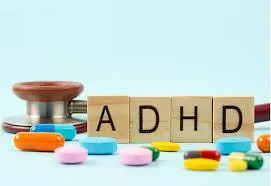
Big Pharma's Conflict of Interest We Let Happen
🧠 When Health Meets Big Business
It’s no secret that much of what we know about mental health and ADHD came from studies funded by the same pharmaceutical companies making the drugs being researched. That alone should make us pause.
A. Long. Pause.
In the 1970s and 1980s, researchers were trying to better understand attention, mood, and behavior. But many of the early studies on ADHD and other conditions were funded, sponsored, or supported by the same pharmaceutical companies manufacturing medications like Ritalin. On paper, that sounds like progress. But when the same companies funding the research are also the ones profiting from the results, it’s not hard to see the conflict of interest.
In the 1980s, ADHD diagnoses in U.S. children were approximately 5%, but by 2022, that figure had risen to 11.4% People.com. Concurrently, ultra-processed foods began to dominate our diets. Today, these foods account for over 55% of the average American's caloric intake, with children consuming nearly 62% The Washington Post.
And while this was happening in research labs, something else was happening in our homes and the shift isn't coincidental.
The average American eats about 3,600 calories a day, and let’s be honest — nobody’s hitting that eating grilled chicken, eggs, and vegetables.
Then, add in the fact that most people sit for 8–10 hours a day, barely move outside of work, and spend their evenings scrolling on phones instead of sleeping — and we’ve built the perfect storm for fatigue, brain fog, depression, anxiety, and poor health.
The connection between all of this isn’t a conspiracy theory — it’s basic human physiology. Ultra-processed foods cause blood sugar spikes and crashes. Those constant swings mess with your insulin, hormones, and neurotransmitters, which directly affect your energy, mood, and focus. Combine that with chronic stress and no physical activity, and your body gets stuck in survival mode. Over time, that looks and feels a lot like anxiety and depression.
So while Big Pharma has poured billions into medicating symptoms, it’s overlooked the foundation of real health — how we move, eat, and recover. Pills can manage, but they can’t fix what lifestyle has broken.
Because real health doesn’t come from a prescription.
It comes from living the way your body was built to thrive — through movement, strength training, proper nutrition, and intentional rest. When you train consistently, eat real food, and take care of your body, you’re doing far more than changing your appearance — you’re literally rewiring your biology for better mental health, better energy, and a stronger future.
The truth is, your body and brain don’t need another pill. They need you — showing up, eating better, moving daily, and deciding that your health isn’t for sale.
⚖️ The Reality
It’s true that many early medical and psychological studies — including those around ADHD — were funded by pharmaceutical companies. This was standard practice for decades, and it often meant progress happened faster because funding was available.
But — and this is crucial — it also created an undeniable conflict of interest. When the same companies that profit from a drug are funding the research that determines its safety, effectiveness, or even its need, the incentive for bias naturally exists.
So start small. Move more. Eat whole foods. Build habits that support the person you want to become.
Because when you do, you won’t just look better — you’ll feel sharper, calmer, and more in control than any prescription could ever promise.
Butler Elite Training — because your health belongs to you.